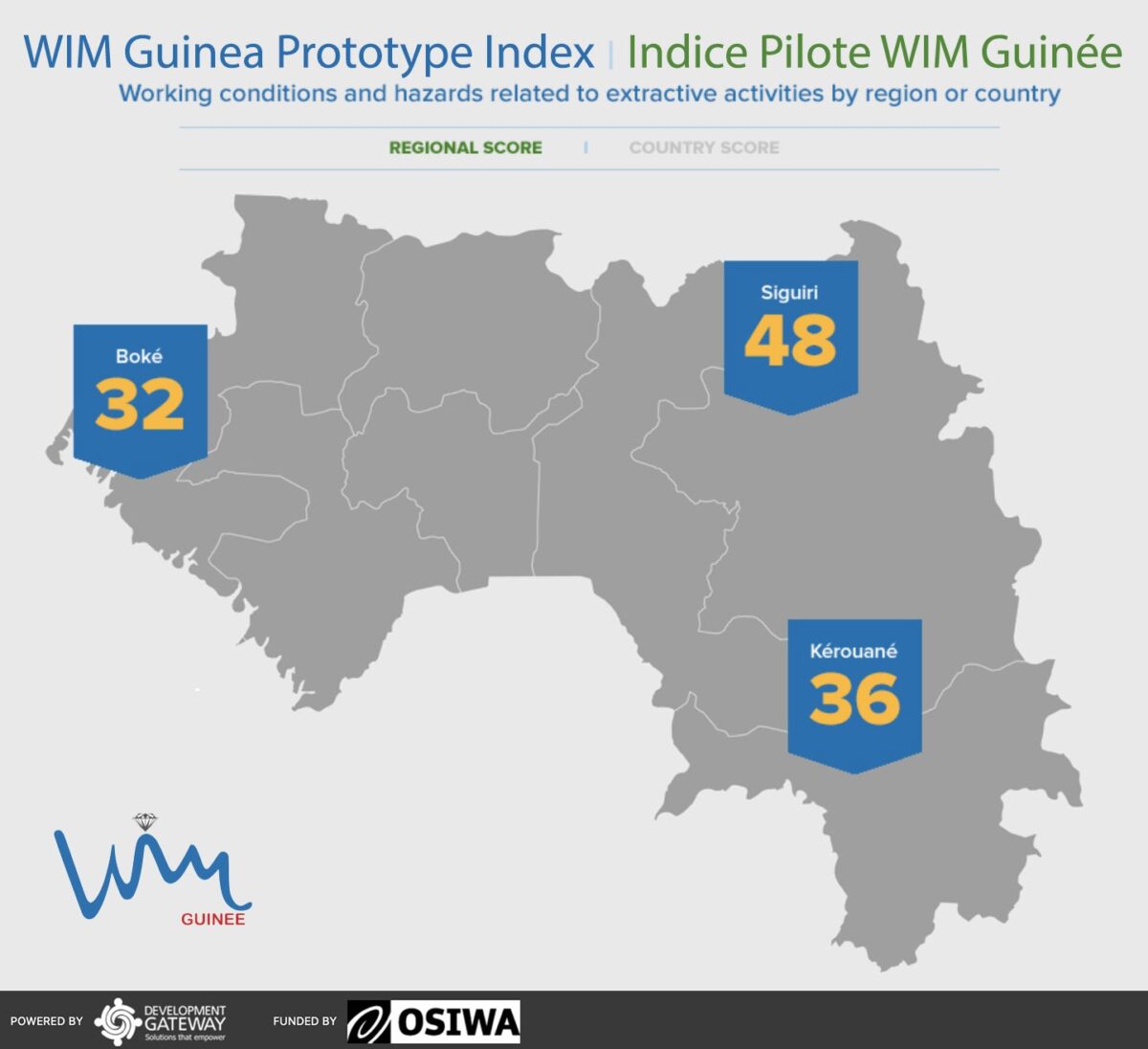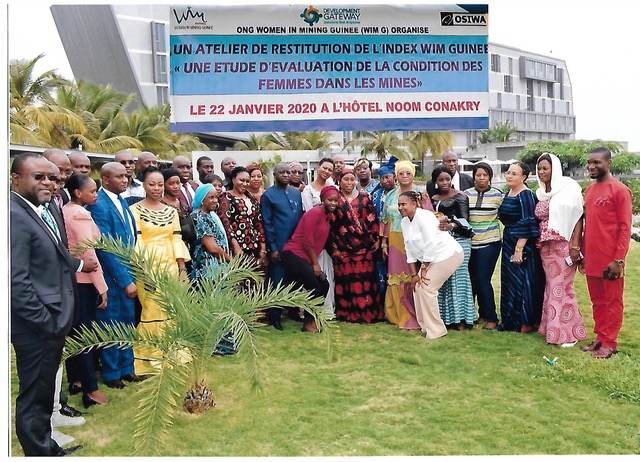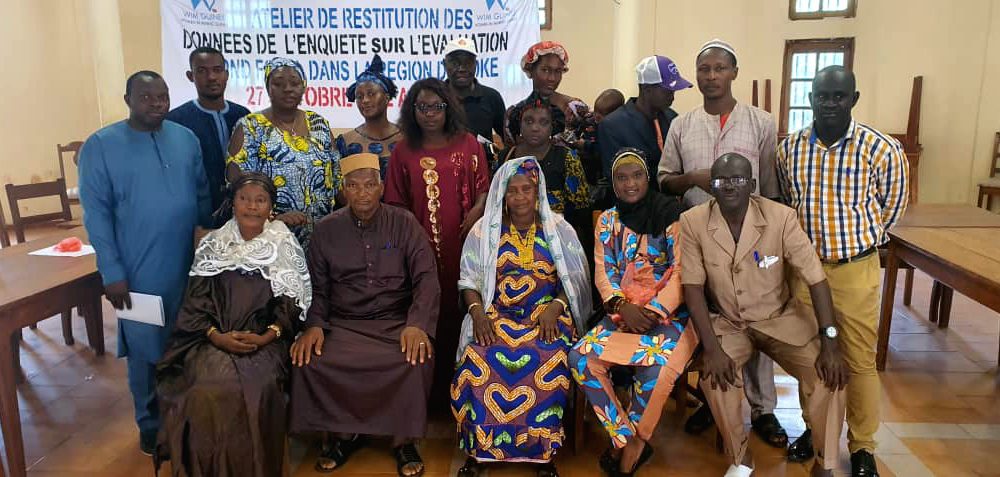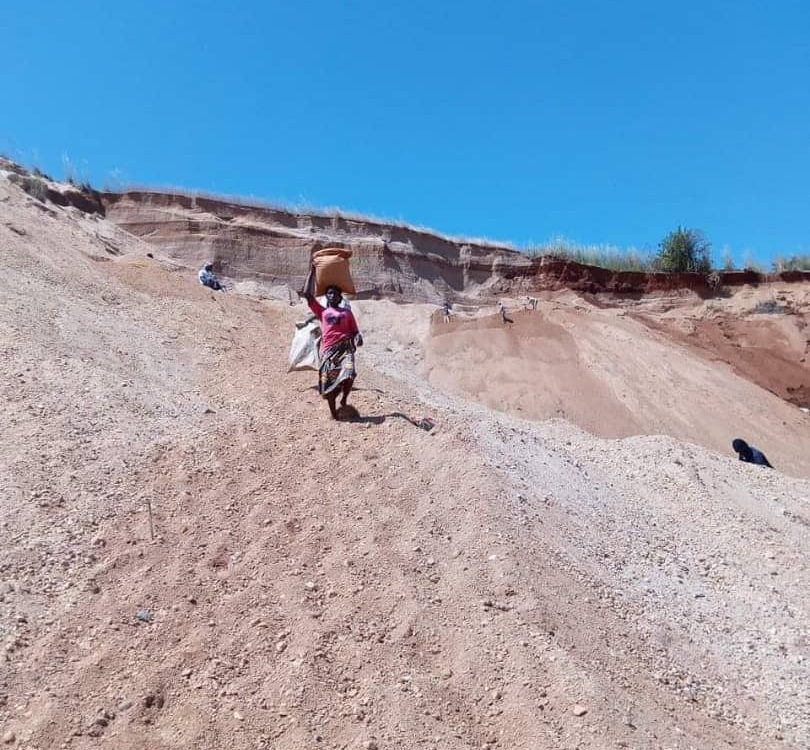The Women in Mining Guinea Index
Using Data to Measure and Improve Gender Considerations in the Extractive Sector
DG developed a first-of-its-kind Women’s Index for the Extractive Sector: the WIM Guinea Index.
With support from the Open Society Initiative in West Africa (OSIWA), our partnership with WIM Guinea targets three mineral-rich Guinean communes: Boké, Siguiri, and Kérouané.
To develop an Index capable of measuring women’s conditions in mining communities, in partnership with OSIWA Guinea. DG developed a Pilot Index that would reveal the relevance and capacities of a more global Index at country level. The WIM Index is used to monitor progress in improving women’s living conditions in mining communities, provides a clear perspective on what hinders women’s involvement in the mining sector, fuels local and national conversation, and promotes decision-making towards sustainable solutions.
This project demonstrates DG’s experience improving transparency and citizens’ ability to pursue accountability in the male-dominated extractives industry (EI). DG understands that gender considerations in EI should extend beyond merely the number of women in EI positions of power – instead, it must also protect women’s rights, education, and health.
Assessment Process
DG conducted assessment interviews with individuals from the National Institute of Statistics, a few private sector companies, the MoH, MoE, and the HR dept of the Ministry of Mining. We then identified the priority themes and variables to be included in the Pilot phase and prepared the questionnaires based on themes around gender equity and women’s empowerment, the role of CSOs in advocating for gender mainstreaming, the role of women in the community and the impact of extractive activities on women’s health.
Gender at the Forefront of Index Design & Development
DG completed design and development of the Index, to best visualize and analyze women’s involvement in the sector, and track broader and cross-cutting dimensions – including indicators to reflect women’s representation and power in the private sector and within the communities. We also made institutional and organizational recommendations to WIM Guinea’s platform and organizational sustainability.

WIM Guinea Prototype Index
Launch, Uptake, and Engagement

At the launch of the WIM Guinea Index in Conakry
Share
Related Posts

Les Fonds FODEL : Un appui aux femmes des es communautés minières avec WIM Guinée
Nous avons organisé un atelier de validation avec notre partenaire de mise en œuvre, Women in Mining (WIM) Guinea dans la région de Boké le 22 octobre 2022 pour confirmer les résultats d'une collecte de données conduite par WIM Guinée dans les sous-préfectures minières de Boké et Boffa. Les données ont révélé des améliorations potentielles des fonds de développement économique local (FODEL) et de leur administration qui, si elles sont mises en œuvre, pourraient permettre davantage aux femmes et aux associations de femmes des communautés minières de capitaliser sur ces fonds et de mieux les utiliser pour soutenir leur développement local.

FODEL Funds: Supporting Women in Mining Communities with WIM Guinea
DG and our implementing partner, Women in Mining (WIM) Guinea, held a validation meeting in the Boké region of Guinea on October 22, 2022 to confirm the findings of a data collection initiative that WIM Guinea conducted in the country’s Boké and Boffa mining subprefectures. The data revealed potential improvements to local economic development funds (FODEL) and their administration that, if implemented, could further enable women and women's associations in mining communities to capitalize on these funds and better use them to support their local development.

Une réflexion sur les données des IE
Au cours des dernières années, DG a intensifié sa recherche dans le domaine des industries extractives (IE) en Afrique de l'Ouest, ce qui a permis de mieux cerner les lacunes en termes de données et d'identifier les opportunités du secteur. Nous avons constaté que les informations disponibles au grand public sont principalement axées sur la transparence des flux financiers et ciblent la scène internationale, mais occultent les facteurs non-financiers et l'impact local réel de l'industrie. Une question reste en suspens : comment promouvoir la divulgation de données susceptibles d'appuyer les communautés impactées par les activités extractives ?